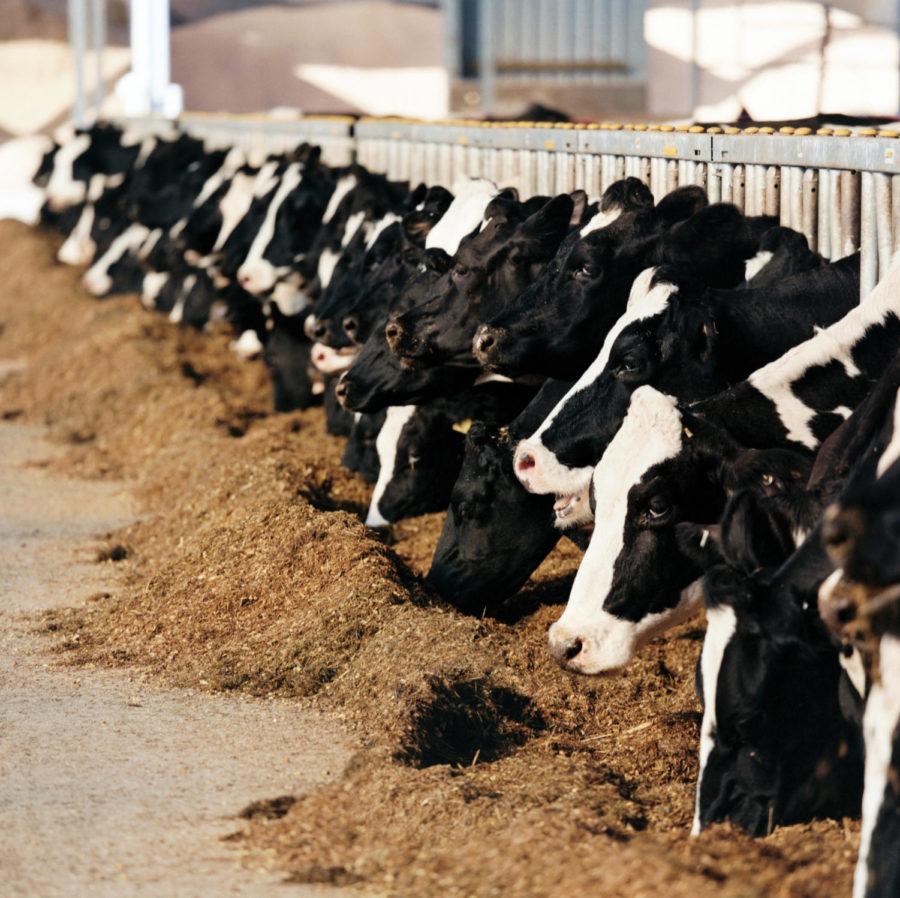Lauver: Should we support animal rights or animal welfare?
Opnion: Lauver 10/22
October 21, 2012
The words “animal rights” and “animal welfare” are commonly used when discussing companion animals and livestock, but what’s the difference — if there is one?
While consumers of animal products may feel animal rights and animal welfare are the same, there is a very distinct line between the two. Animal rights refers to the idea that all animals are entitled to the possession of their own lives and that their interests should be afforded the same consideration as human life.
Animal welfare, on the other hand, is the physical and psychological well-being of the animal. Animal activist groups are concerned with animal rights, not animal welfare. Groups like PETA and the Humane Society of the United States, who are not your local pet shelter, work on their own agenda to ending animal agriculture in the hopes of promoting a vegan lifestyle. They would like to see chickens, cattle and pigs running freely in rural America versus being caged or penned in fences.
On the other hand, farmers and ranchers, both corporate and family, are primarily concerned with animal welfare. With the criticism of production practices, such as confinements for cattle and swine, it may seem that farmers are only interested in getting their livestock fat, then sending them to market regardless of animal welfare.
What many people don’t realize is that livestock producers go to great lengths to provide the utmost care for the animals they raise. It is literally in the farmer’s best interest to ensure that each animal is healthy, comfortable and safe. Extensive studies have shown that a healthy, happy animal is an efficient, high-producing animal. Animal welfare science is an actual field that has been pursued so that producers can make continual improvements on the environments their livestock are raised in.
This is contrary to what PETA and other groups advocate because it is easier to promote a vegan lifestyle when the alternative form of food production appears so cruel and heartless.
Agriculturalists simply just want the general public to understand that animals raised for food production is far from a cruel act and that the welfare of animals is a major concern at every level of production.
The myths surrounding livestock confinement facilities need to be addressed as well. Animal activists insist that swine producers are preventing their animals from “running free” in their natural habitat, through confinement buildings, and that animal health, happiness and overall welfare is compromised. The concern they bring forth is the fact that the pigs would be happier running around freely like a farm cat or dog. The fact is these swine confinements are similar to an all inclusive resort with ventilation, all you can eat food, drink and friends. The producers of these pigs walk through the barn daily to check on them. Their livelihood depends on the health and well-being of these animals.
The truth of the matter is that by putting current production hogs in gestation pens, inter-group fighting is increased, injury and death loss increases, and pregnancy retention suffers. Hogs are certainly healthier and happier in an efficient environment where producers can better manage their well-being. As “Mythbusters” would put it: “busted.”
We are at a critical moment where agriculture must be either defended or simply pushed around by animal activist groups who gain the support of an unknowing public by feeding the public sensational stories about the evils of animal agriculture and preying on the public’s sympathetic tendencies.
It is most critical that agriculture and the well-being of our animals are defended. We must not think of this as how we would like to be treated in the animals situation but, rather, how the animal wants be treated. By understanding modern agricultural practices, you’ll find they might be happier than you.







